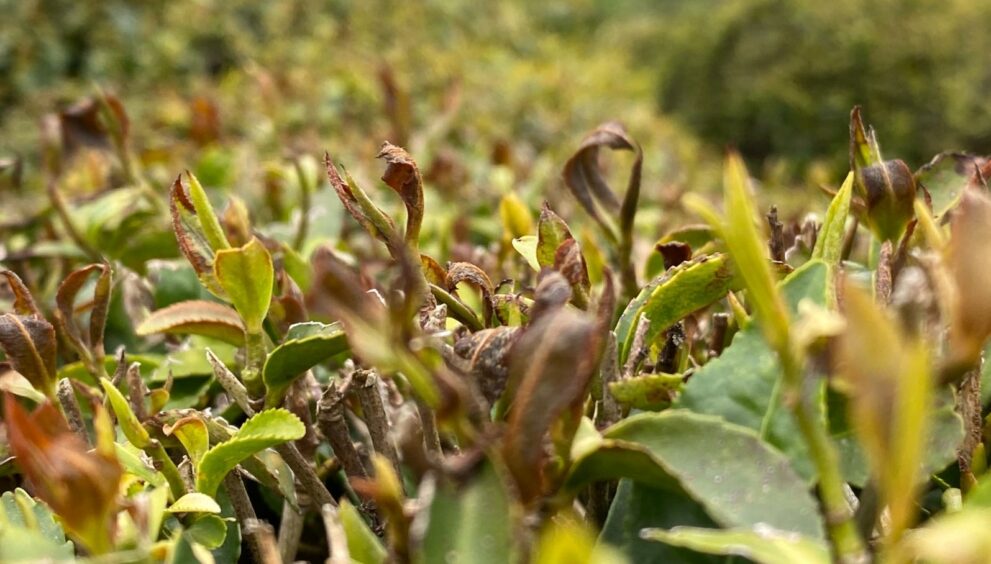Winter Disaster Strikes in Spring! Tea Leaves Burned, Producers Worried Sick

Turkish producers who recently experienced the heaviest agricultural frost in years are deeply concerned. The agricultural frost that occurred with the drop in temperatures in the Eastern Black Sea region negatively affected tea after hazelnuts. Producers are anticipating a significant decrease in this year’s tea yield. Turkey witnessed the most severe agricultural frost event in recent years. Fruit and vegetable gardens nationwide suffered severe damage, increasing the losses for farmers. Below-average temperatures and snowfall in the Eastern Black Sea region adversely affected agricultural products.
The cold weather not only affected blossoming hazelnut flowers but also new shoots in tea gardens. The harvest period is expected to extend due to tea leaves turning brown and freezing in the cold, resulting in crop loss. Reddened patches in the gardens were observed from the air.
Bünyamin Arslan, the President of the Rize Chamber of Agriculture, mentioned that the agricultural frost was more prevalent in gardens with incorrect fertilization. Predicting a decrease in tea harvest in the region after the agricultural frost, Arslan stated: “There are significant frost burns on the coast and some high-altitude areas currently. The agricultural frost will prolong and delay the harvest time. Considering the tissue damage, we do not believe we can achieve the same 4 harvests as last year. Although the full reports have not been completed, we expect a crop decrease between 2% to 3%, which could result in a loss of approximately 150,000 to 200,000 tons in crop yield.”
Highlighting that improper fertilization can worsen the effects of agricultural frost, Bünyamin Arslan added, “Our farmers need to fertilize correctly to protect against agricultural frost. From what I have observed, areas where fertilizer has been applied are more prone to agricultural frost. I believe incorrect fertilization is one of the factors contributing to agricultural frost.” Tea producer Osman Terzi, noting that fresh tea leaves were burned, expressed, “It snowed unexpectedly; after the snowfall, frost occurred. Our fresh tea shoots were completely burned. This is an economic loss for us.” Nizamettin Terzi, another tea producer, shared, “After the last snowfall, all the tea was burned except for fruits and vegetables. It caused a delay of one more month in harvesting tea. We would have harvested tea on May 5th, but it seems we will only collect the first flush on June 5th.” Hanife Terzi lamented, “It snowed. Ice formed, frost occurred. Our teas were burned. Our fruits were burned. Nothing remained. We are currently in a difficult situation.”






















































































































































































































































































































































































































































































































































































































































































































































































































































































































































































































































































































































































































































































































































































































































































































































































































































































































































































































































































































































































































































































































































































































































































































































































































































































































































































































































































































































